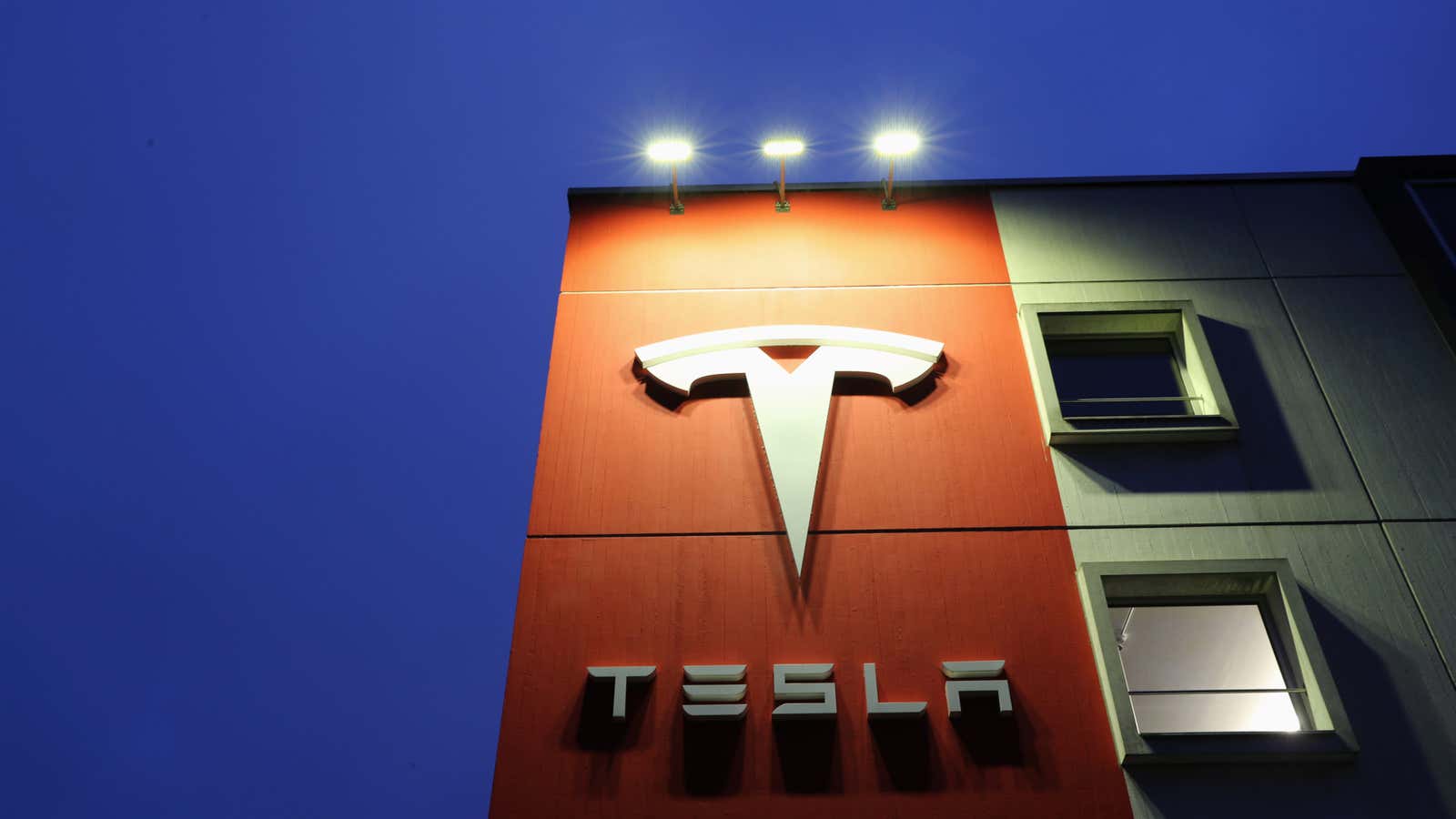A former Tesla employee has been awarded $137 million after filing a racism lawsuit against the car maker.
Yesterday (Oct. 4), a jury in San Francisco ruled that Tesla failed to stop racial harassment in the workplace against Owen Diaz, a Black elevator operator who worked as a contractor at the company’s Fremont Plant between June 2015 and May 2016. He is due to receive $130 million in punitive damages and $6.9 million for emotional distress.
Diaz alleged he suffered from weight loss and sleepless nights because of a hostile work environment. He complained of Black workers being subject to racial slurs at the plant, including use of the n-word; racist graffiti and cartoons in his workspace and the toilets; and being told to “go back to Africa” by colleagues.
“The jury knew that this is not just for me; this verdict is for everybody that works at Tesla,” Diaz said in an interview with The Daily Beast after the verdict. “This is their way of putting Elon Musk on notice.”
Tesla’s alleged racism problem
Diaz’s case far from an anomaly.
Earlier this year, former Tesla employee Melvin Berry, who said he was called the n-word by a supervisor and loaded with what he described as unfair work, was awarded $1 million by an arbitrator after closed-door proceedings.
In 2017, former assembly worker Marcus Vaughn brought a class-action lawsuit against the company he described as a “hotbed for racist behavior.” Vaughn, who was fired for “not having a positive attitude,” recalls being called racial slurs, and claims to have witnessed a Black co-worker getting beaten with a chair.
More Perfect Union, a workers’ rights organization in the US, claims over 100 current and former employees have encountered racism at Tesla, “including repeated use of the n-word, demeaning assignments and barriers to promotions.”
In Diaz’s case, the auto-maker has not appealed the decision (yet), but in an email to employees, which was later published as a blog post, vice president of people Valerie Capers Workman asserted that witnesses claimed the n-word was only used in a “friendly” manner and there was no evidence of anyone directing it towards Diaz.
“He didn’t make any complaints about the n-word until after he was not hired full-time by Tesla—and after he hired an attorney,” she added. Additionally, Capers Workman, who is also Black, claimed that the “three times” Diaz did complain about harassment, Tesla “stepped in” and took reformative action.
How does Tesla handle complaints?
Tesla, like most major non-unionized companies, uses mandatory arbitration to quell legal action by employees and force them to settle privately. Diaz had not signed such an agreement, so his case made it to court.
Private arbitration—a quasi-legal forum with no judge, no jury, and next to no regulatory oversight—tends to favor employers. Workers are not only less likely to win, but when they do, they get much less money. Just compare Diaz and Berry’s payouts.
In the last few years, search giant Google has ended the practice entirely, and other tech behemoths like Facebook, Airbnb, Uber and Lyft have relaxed their mandatory arbitration policy for sexual harassment complaints.
A shareholder activist, Nia Impact Capital, urged Tesla’s board to look into how arbitration may hurt the firm’s workplace culture. “The use of mandatory arbitration provisions limits employees’ remedies for wrongdoing, precludes employees from suing in court when discrimination and harassment occur, and can keep underlying facts, misconduct or case outcomes secret and thereby prevent employees from learning about and acting on shared concerns,” it said in a shareholder proposal.
Tesla’s annual shareholder meeting is scheduled for Oct. 7.
